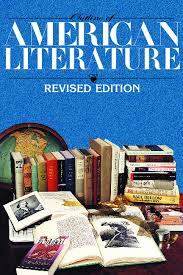Ph.D. in American Literature: Introduction, Admission, Registration, Eligibility, Duration, Fees, Syllabus 2024

Introduction:
Embarking on a Ph.D. in American Literature is a journey into the heart of literary expression in the United States. It's a path that offers not only academic enrichment but also personal and professional growth. In this blog, we'll delve into the intricacies of pursuing a Ph.D. in American Literature, from admission processes to career opportunities and everything in between.
Admission Process:
- Application Submission: Prospective students must complete and submit an online application form, including personal details, academic transcripts, letters of recommendation, and a statement of purpose.
- Entrance Exams: Many programs require GRE scores, while some may also ask for subject-specific tests like the GRE Literature in English.
- Writing Samples: Applicants typically submit samples of their academic writing, often essays or research papers related to American literature.
- Interviews: Shortlisted candidates may be invited for interviews, either in person or via video conferencing, to discuss their academic interests and goals.
Eligibility:
- Master's Degree: Most programs require applicants to hold a master's degree in English, American Studies, or a related field.
- GPA Requirement: A minimum GPA (usually around 3.0 on a 4.0 scale) is often required for admission.
- Language Proficiency: International students may need to demonstrate proficiency in English through standardized tests like the TOEFL or IELTS.
- Research Experience: Strong research skills and a demonstrated passion for American literature are highly valued.
Completion Time:
The completion time for a Ph.D. in American Literature varies depending on factors such as program structure, course load, and individual progress. On average, students can expect to complete their degree in 4 to 6 years of full-time study.
Career Opportunities:
- Academia: Many graduates pursue careers as professors or researchers in universities and colleges, teaching and conducting research in American literature.
- Publishing: Opportunities exist in academic publishing houses as editors or manuscript reviewers, specializing in American literary works.
- Writing and Editing: Some graduates become freelance writers or editors, contributing to literary magazines, journals, or online publications.
- Cultural Institutions: Museums, libraries, and cultural organizations often hire Ph.D. graduates to curate exhibits, develop educational programs, or conduct archival research.
- Nonprofit Organizations: Organizations focused on literacy, education, or cultural preservation may seek Ph.D. holders for roles in program development, grant writing, or advocacy.
Syllabus:
- Survey Courses: These courses provide an overview of American literary history, spanning from colonial literature to contemporary works.
- Specialized Seminars: Topics may include specific authors, genres, or literary movements, allowing students to delve deeper into areas of interest.
- Theory and Criticism: Courses explore various theoretical approaches to literary analysis, providing students with critical frameworks for their research.
- Dissertation Research: At the culmination of the program, students undertake original research and writing under the guidance of a faculty advisor.
Internship Opportunities:
- Teaching Assistantships: Many programs offer teaching assistantships, allowing students to gain valuable experience in course instruction and grading.
- Editorial Internships: Students may intern with academic journals, gaining experience in manuscript evaluation, peer review, and publication processes.
- Outreach Programs: Internships with literary festivals, community libraries, or educational outreach initiatives provide opportunities for public engagement and networking.
Scholarships and Grants:
- Departmental Funding: Some programs offer competitive scholarships or fellowships to incoming Ph.D. students, covering tuition expenses and providing stipends for living expenses.
- External Grants: Students are encouraged to apply for external funding from organizations such as the Fulbright Program, the National Endowment for the Humanities, or the Ford Foundation.
- Research Grants: Graduate students may apply for research grants to support dissertation research and conference travel expenses.
FAQs:
Is prior teaching experience required for admission?
While prior teaching experience can strengthen an application, it is not always required. However, a passion for teaching and a willingness to engage with pedagogical practices are essential.
Can I specialize in a particular period or author?
Yes, many programs offer flexibility for students to tailor their coursework and research to their specific interests, including focusing on a particular literary period, author, or genre.
Are online Ph.D. programs available in American Literature?
While online courses and hybrid programs may be available, fully online Ph.D. programs in American Literature are rare due to the hands-on nature of literary research and academic mentorship.
What support services are available for Ph.D. students?
Most programs offer a range of support services, including academic advising, writing centers, career counseling, and mental health resources to assist students throughout their doctoral studies.
